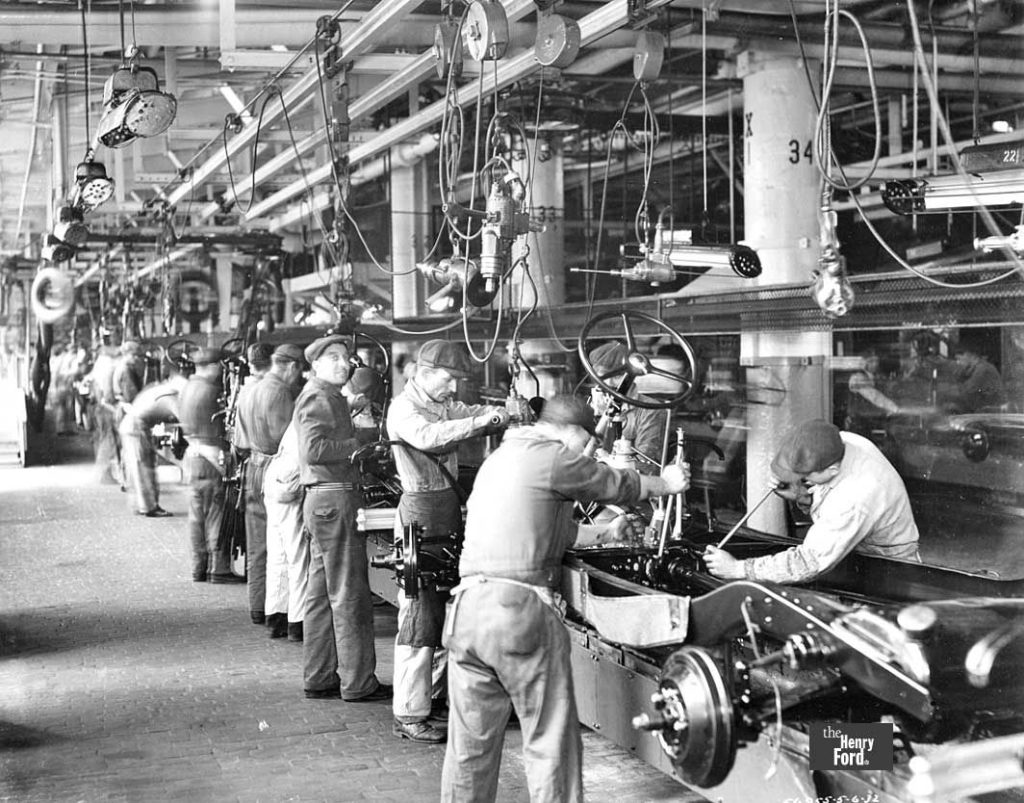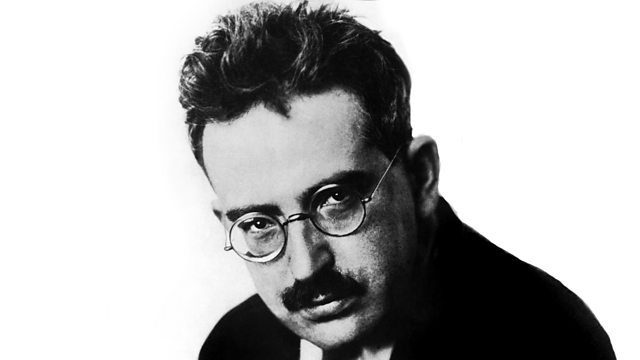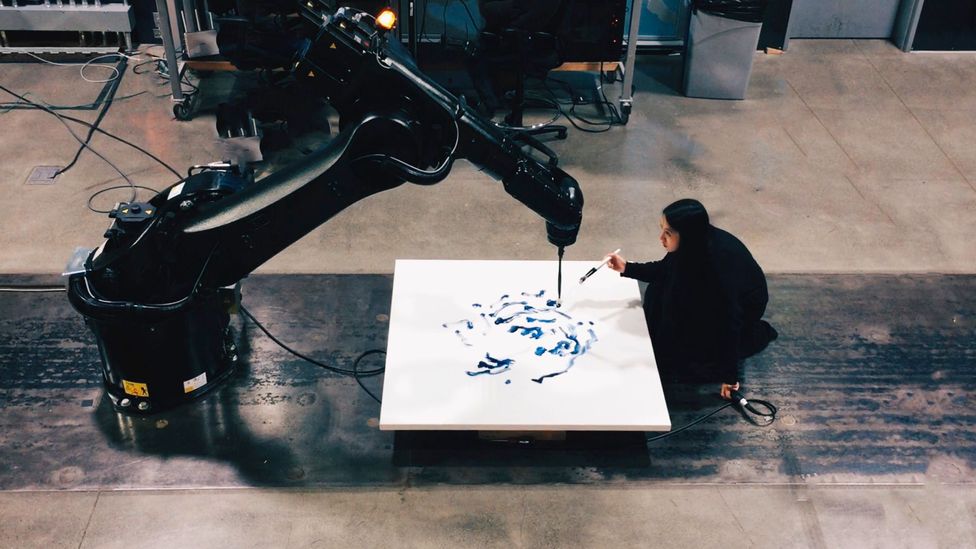Week 3: Robotics + Art
There is no doubt that the advent of machines and industrialization have resulted in necessary advancements in society. For example, the printing press established by Johannes Gutenberg unlocked the potential to print texts on mass scales and Ford's Assembly line allowed automobiles to become more affordable to the average consumer. The fact is that machines allowed many industries to operate more efficiently and effectively by replacing aspects of human labor with machine labor. However, the downside to mechanization is the risk for many workers to potentially lose their job when they can easily be replaced by machines. Thus, as the world becomes more involved with machines, the concern of unemployment arises.
 |
| Ford's assembly line |
Machines have also become involved in the way art can be produced or reproduced. Walter Benjamin, author of “The Work of Art in the Age of Mechanical Reproduction,” believes that the involvement of machinery in art is problematic because its reproductive capability essentially destroys the unique factor of art. He also continues by stating "the withering of the aura is inevitable," meaning that it is unlikely to prevent the constant reproduction of art as the use of machinery becomes more prevalent.
 |
| Walter Benjamin |
I personally agree with Benjamin since I believe that the integrity within art is grounded in its uniqueness and the fact that it would be difficult to reproduce simply because it is someone's personal creative expression. Art in general is very personal to the creator, and the action of reproducing it degrades the meaning behind it. Despite that mechanization can ultimately destroy the uniqueness of art, it is also important to consider that machines, especially in the present, have been responsible for creating some of the most extravagant and marvelous pieces. At the end of the day, machines are becoming progressively more involved in art and so it is important to embrace this change for the better and utilize its advantages for the benefit of the culture.
 |
| Art created by an artificially intelligent machine |
Images:
Fabien. “Who Invented the Assembly Line?” Who Thought of It?, 22 Jan. 2022, https://www.whothoughtofit.com/who-invented-the-assembly-line/.
“In Our Time, Walter Benjamin.” BBC Radio 4, BBC, 10 Feb. 2022, https://www.bbc.co.uk/programmes/m0014710.
“Art Made by Ai Is Selling for Thousands – Is It Any Good?” BBC Culture, BBC, https://www.bbc.com/culture/article/20181210-art-made-by-ai-is-selling-for-thousands-is-it-any-good.
Sources:
Lokitz, Justin. “Will Machines Replace Humans in the Future of Work?” Business Models Inc., 19 Oct. 2018, https://www.businessmodelsinc.com/machines/.
Vesna, Victoria. “Lecture Part 1.” Math + Art. 15 Apr. 2012. Lecture.
Vesna, Victoria. “Lecture Part 2.” Math + Art. 12 Oct. 2012. Lecture.
Benjamin, Walter. The Work of Art in the Age of Mechanical Reproduction, 1936.
Brooks, Rodney. “Robots Will Invade Our Lives.” TED, Feb. 2003, www.ted.com/talks/rodney_brooks_robots_will_invade_our_lives.
Hello Johnathan,
ReplyDeleteI really enjoyed reading your post! I definitely agree with you that to some degree uniqueness is lost with the rise of robotics. I think some great examples of this is the use of famous works of art, such as the Mona Lisa and Starry Night, as partners of random, everyday objects such as coffee mugs, magnets, and backpacks. And I believe that when used in such a manner, the robotics used to create these products reduce the uniqueness of the original painting. However, I do not believe all robots destroy uniqueness, in fact I would argue that robotics allows us to take past works and transform it into new art forms that could never have been possible without the use of robotics. As such, I think robotics can be detrimental or beneficial to art depending on the context and the way in which it is used. Thank you for the thought-provoking post!
Hi Jonathan! Industrialization definitely has been one of the tools that have allowed society to advance in the ways we communicate and create, whether that be how we distribute knowledge or the process in which how art is created. I find it really interesting how you mentioned the popular belief that machines will take over jobs. After watching the lectures and reading the articles for this week, I would argue that we should embrace technology specifically technology used in the medical and hospitality field. Intelligent machines should be viewed as tools that could help us advance research in honestly whatever field. We as a society shouldn't feel intimidated by machines (though honestly at times smart machines are intimidating haha), but rather see machines as tools for advancement and tools for collaboration, and innovation. Great blog!
ReplyDeleteHi, Jonathan!
ReplyDeleteI thought your take on the progress of technological art was very interesting. I can empathize with the people's beliefs that machinery detracts from the originality of art. I also agree with your perceptions. I do not think art is being distorted, I think art's possibilities are expanding. For example, Nathan Selikoff's Audiograph creates art out of sound waves. Art like that would have never been possible before the digital age.
Overall, your blog post was personally insightful and well done.